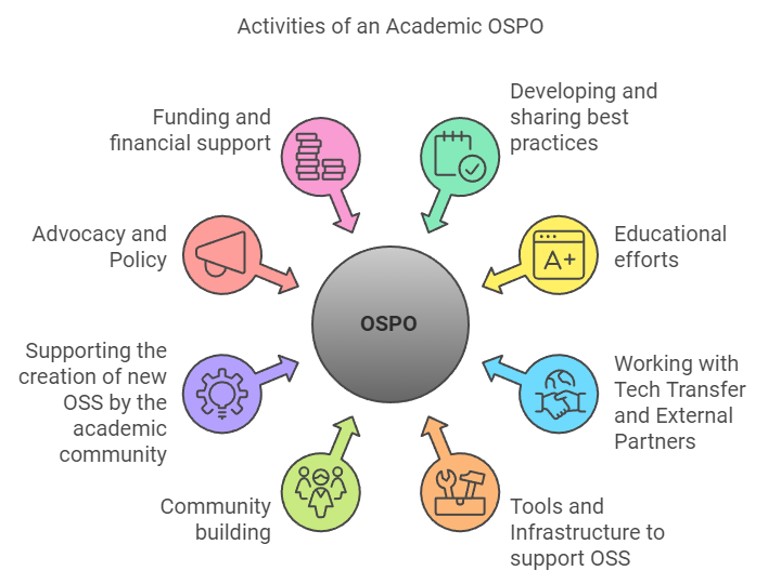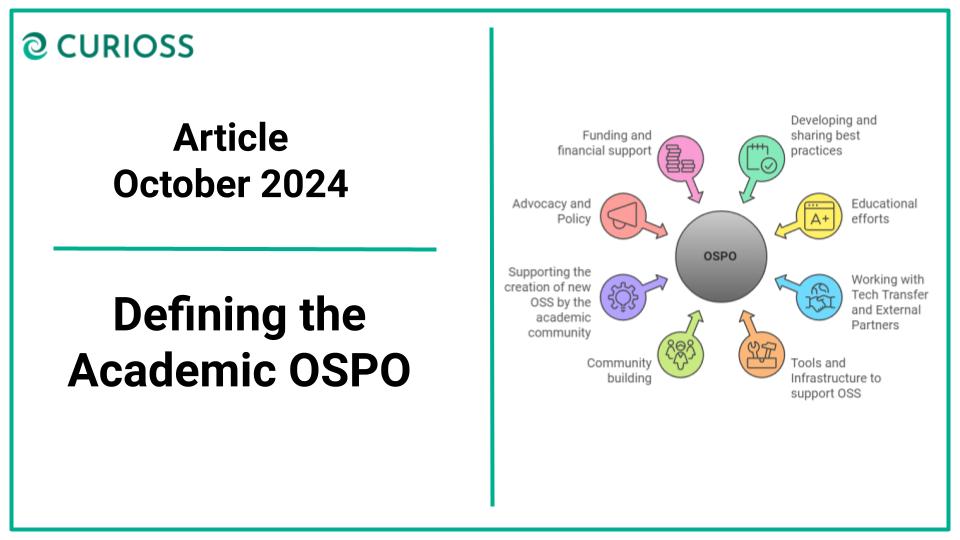Over the last 20 years, Open Source Program Offices (OSPOs) have become a relatively common feature in major tech companies and other industries. Many businesses rely upon their OSPOs to manage open source software efforts within their organizations.
Industry OSPOs also have other functions including developing guidelines and policies on the use of open source; contributing to the open source ecosystem; and ensuring alignment with corporate strategy and vision. As open source software continues to grow in importance in academic settings; universities and other academic institutions are looking to enhance their open source capabilities by establishing academic OSPOs.
This article provides a short overview of the current findings of a sub-committee of CURIOSS members who are collaborating to develop, refine and expand upon the definition of an academic OSPO. We encourage you to visit the CURIOSS GitHub repository to find out more details, and we welcome comments and feedback on the definition there.
Summary Definition
An academic OSPO is defined as an organizational construct, situated in an academic research institution, supported by one or more individuals that acts as a convener, community steward, and center of competency for open source software.
An academic OSPO may cover some or all of the following: funding and financial support, advocacy and policy, supporting the creation of new OSS by the academic community, community building, tools and infrastructure to support OSS, working with tech transfer and external partners, educational efforts, developing and sharing best practices.
Mapping OSPO activities
This work of defining what an OSPO does has been worked on by a working group of OSPO members from Carnegie Mellon University, Georgia Institute of Technology, Saint Louis University, the George Washington University, and UC Santa Cruz. Just like any central resource in an academic institution, the breadth of activities is wide and diverse and also varies from one institution to another.
The graphic below provides a broad overview of the various activities undertaken by different CURIOSS members. Please see the main article on GitHub or on Zenodo for more information on each topic.

They include:
- Developing and sharing best practices
- Educational efforts
- Working with Tech Transfer and external partners
- Tools and Infrastructure to support OSS
- Community building
- Support the creation of new OSS by the academic community
- Advocacy and Policy
- Funding and financial support
The types of work undertaken by different OSPOs will depend on the mission of their university, the resources available and the strategic direction of the service. Within each category of work, numerous activities may take place. The types of activities will depend on resources and the strategic direction of the OSPO; not every OSPO is able to support all of the listed activities.
